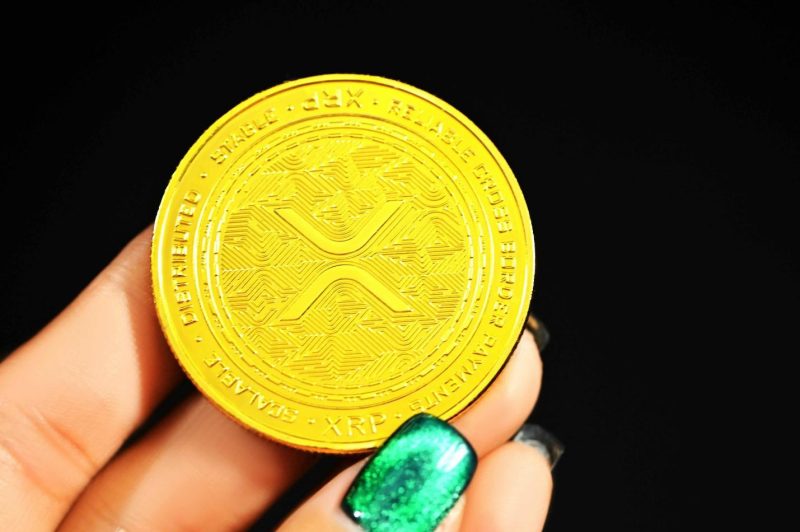Have you ever listened to a conversation about cryptocurrencies? Try to remember the projects people usually mention in these kinds of discussions. Chances are, they usually include Bitcoin and Ethereum. But over the last couple of years, people have also started to include Ripple because it’s an alternative to the two major assets. Ripple, also known as XRP, has carved out a unique position in the crypto sector, often sparking speculation about whether it could ever rival or maybe even overthrow the dominance of the two largest projects by market capitalization. When making an XRP price prediction, you want to see that such a seismic shift is truly possible and that Bitcoin and Ethereum aren’t so deeply entrenched that they cannot be toppled.
At the very heart of this debate will lie the question many investors are asking: do efficiency, speed, and utility outweigh decentralization, brand recognition, and network effect? Ripple has all the characteristics to answer traders’ questions and turn the tables in its favor.
Bitcoin has always been the immutable pioneer in the sector
When analyzing Ripple’s challenge, it’s essential to note the near-mythical status of Bitcoin. Born in 2009, Bitcoin is more than the first digital currency; it has become a cultural phenomenon, the embodiment of digital gold, and the symbol of financial independence in a time when centralized banking institutions dominate. Its blockchain is notoriously slow according to the latest standard, but it remains the most decentralized and secure in existence, with a vast network of miners spread across the globe. Yet, with its strength also comes its weakness. Bitcoin processes around seven transactions per second, a figure that feels almost laughable when compared with modern payment systems like Visa. Its fees, especially during periods of network congestion, can rise to levels that make microtransactions nearly impossible. And while its store-of-value narrative remains intact, its role as a true day-to-day currency remains underwhelming.
Ethereum is the smart contract king
Ethereum differs from Bitcoin because it has always focused its efforts on being a programmable blockchain instead of being digital money. With the introduction of smart contracts and decentralized apps, it opened up a world of possibilities that Bitcoin couldn’t achieve. It became the backbone of non-fungible tokens, decentralized finance, and several other blockchain innovations. However, Ethereum has always experienced scalability issues. Even if the transition to proof-of-stake and the continued development around rollups and sharding should improve the problems, the network continues to feel expensive, clogged, and less user-friendly, which has a negative impact on mainstream adoption.
Ripple has a unique value proposition
Ripple approached the crypto market differently because it didn’t present itself as digital gold like Bitcoin or the foundation for decentralized innovation like Ethereum, but instead focused on becoming the bridge currency for global payment. The settlement times in the network are measured in seconds, and the transaction costs are negligible, so Ripple can be a solution that solves most problems in the crypto sector and those that haunt the traditional banking sector, which deals with expensive, slow, and riddled with intermediaries transfers. The company behind Ripple, Ripple Labs, has also worked directly with banks, payment providers, and financial institutions, which sets it apart from the more rebellious, anti-establishment ethos of Bitcoin. Depending on who you ask, this strategy is either Ripple’s greatest strength or its Achilles’ heel. By aligning itself with the very players that cryptocurrencies were designed to disrupt, Ripple risks alienating purists. Yet, from a pragmatic perspective, this institutional embrace could be precisely what enables Ripple to carve out a permanent role in the global financial system.
Does Ripple stand any chance of overtaking Bitcoin?
Let’s get real, it’s quite challenging for Ripple to dethrone a digital asset like Bitcoin, at least in terms of cultural dominance and capitalization. Bitcoin’s role as a store of value is so entrenched that people usually refer to it as digital gold, and only this narrative is enough for the majority of investors to find it a special place in their portfolios. Ripple could outperform Bitcoin in efficiency and speed, but unfortunately, speed alone isn’t enough to replicate security, decentralization, and brand, and Bitcoin has all of these. Moreover, Bitcoin thrives on scarcity, with its hard cap of 21 million coins forming the bedrock of its investment thesis. Ripple, by contrast, has a vastly higher supply, which dampens its store-of-value argument. So while Ripple may rival Bitcoin as a transactional currency, it is unlikely to displace it as the ultimate reserve asset of the crypto space.
Could Ripple outshine Ethereum?
Now, the battle with Ethereum is more nuanced because Ethereum has gained success because it has been considered a versatile asset, so it’s more than a cryptocurrency; it’s a platform that promotes decentralized innovation. Ripple focused on cross-border payments, so its narrowness will always be a disadvantage in the battle with Ethereum. However, Ripple also promises to optimize and specialize in ways Ethereum cannot. Ethereum’s gas fees and transaction bottlenecks have long frustrated users, and while scaling solutions are in progress, they are far from complete. Ripple offers a smoother, faster, cheaper experience, but without the smart contract capabilities that make Ethereum indispensable to developers. Therefore, while Ripple could theoretically dominate the payments space, Ethereum is likely to maintain its stronghold as the infrastructure layer for decentralized finance, gaming, and beyond.
Now, let’s answer the question: Could ripple overthrow Bitcoin and Ethereum?
The truth is, it’s wrong to use the word overthrow because Ripple is unlikely to replace Bitcoin as digital gold or Ethereum as the foundation of decentralized innovation. However, it can achieve dominance in niches where Bitcoin and Ethereum struggled, like cross-border payments. It builds deep connections with banks, offers low-cost transfers, and positions itself as a practical solution for the real-world money movement.
In other words, the future may not be about Ripple overthrowing Bitcoin or Ethereum but about all three coexisting, each representing a different pillar of the crypto world: Bitcoin as digital gold, Ethereum as decentralized infrastructure, and Ripple as the payments network.








